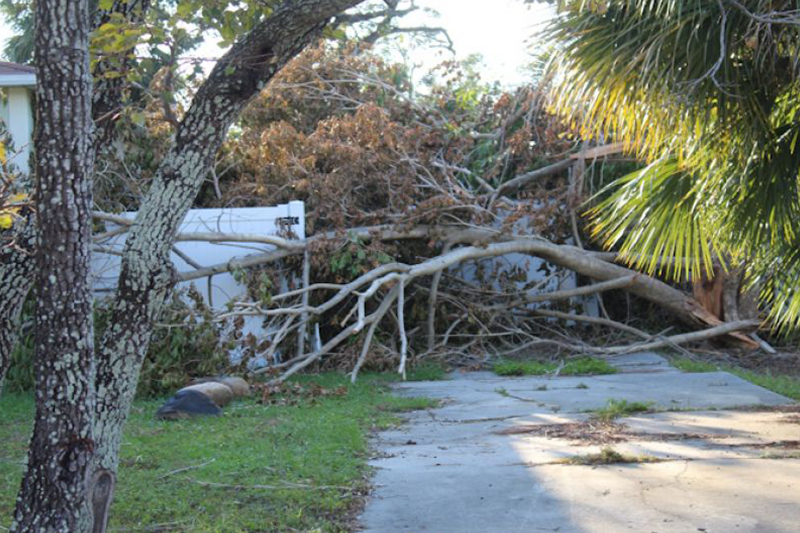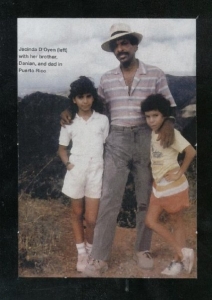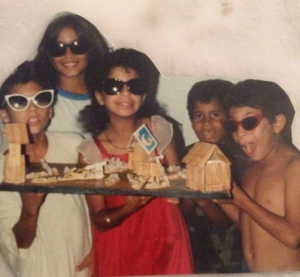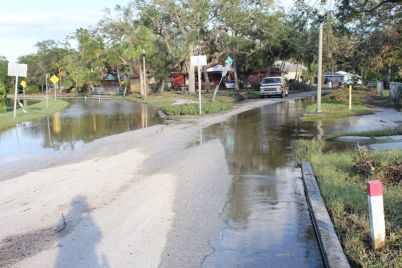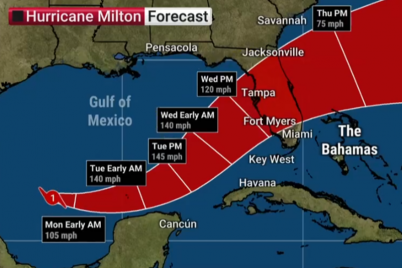By Jacinda D’Oyen-Woodley | Contributor
Hurricane prep is second nature to most who’ve lived in Florida for more than a few years. As my family and I braced for the recent “monster” hurricanes – Helene and Milton —we carefully checked off our list of necessities.
Water? Check. Fill the bathtub? Check. Candles, wood? Check, check…And so on.
Hurricane Helene left our lights on, thankfully. But we weren’t so lucky when Milton struck: we were left with no power and no clear indication as to when it would be back.
Sitting in our hot, humid, powerless home, my kids immediately started thinking of friends or relatives with electricity so they could escape the discomfort. The thought of spending days—possibly a week or more—without constantly charged phones, air conditioning, video games, hot showers, and lights seemed unbearable to them.
Even so, I wasn’t complaining – there are thousands in the Tampa Bay area who lost everything. Still, it was a moment to reflect and draw on survival skills I’d learned in childhood, skills that have remained invaluable to this day.
Lessons from a Puerto Rican mountain top
When I was 11, my mother sent my brother and me to Puerto Rico for the summer to stay with my father, uncle, and cousins in a small house in the rural mountains. That summer turned into 12 months, as we begged to stay for the school year.
What we didn’t know then was just how unreliable Puerto Rico’s infrastructure could be—or how deeply our father would spiral into drug addiction.
Unlike New York City, where we lived most of our lives, we quickly learned that in the Puerto Rican mountains, heavy rain often knocked out the electricity. Sometimes, without warning, the water supply to homes would also stop. We became accustomed to storing candles, wood, water, and other essentials for these frequent outages.
But for my brother and me, the blackouts lasted longer and happened more frequently because our father often spent his entire monthly disability check on drugs.
My brother and I made it work
My father was a striking, self-described Afro-Rican Vietnam veteran who struggled with addiction to both alcohol and drugs, using them to cope with severe PTSD. He had survived Vietnam, a racist shooting in New York that left him with one leg, and the heartbreak of losing both parents shortly after. When we first arrived in Puerto Rico, he was in recovery, but it wasn’t long before the addiction took hold again.
Since much of his check went toward drugs, we often couldn’t pay the electric or water bills, leaving us to live for weeks, even months, without running water or power.
Those were tough times, but we learned a great deal about survival.
We reused every jug and bottle to store water. When the water ran out or wasn’t running, we collected rainwater for bathing and washing dishes, saving clean water strictly for drinking. We did our homework and chores during the day to take advantage of the sunlight, knowing we’d be lucky to have a single working candle after dark.
When it rained, we danced in the downpour to cool off from the stifling summer heat. In the evenings, we sat on the porch, talking, telling jokes, and listening to the only battery-operated radio we had until bedtime.
My brother and I became adept at making this “unusual” arrangement work and relied on our community for help. We knew which neighbors would share dinner with us. Our father taught us to gather wood and kindling to build an outdoor fire, and on that fire, we’d cook rice, beans, eggs, and bacon. We even brewed coffee. We harvested fruits and vegetables from our land to make salads and guacamole.
While it was undeniably hard, we turned survival into a game. My brother and I competed to see who could collect the best wood for the fire. We made plans about which neighbor’s house we’d visit for dinner. As the sun set and we listened to salsa music in the evening, my father, who played the congas, would tell elaborate stories about the musicians he had played with in New York.
I’ve learned that survival skills endure
Years later, I find myself leaning on those childhood experiences during challenging moments—like the COVID-19 quarantine and of course, the recent hurricanes.
As my kids complained about the lack of electricity, I calmly pulled out the water we had saved, lit the candles, and set up the charcoal for cooking. I checked to make sure we had plenty of dried beans and rice, then sat down, confident that we’d be fine. When I began to feel stressed, I reminded myself that I had done this for months in Puerto Rico as a child—this was nothing in comparison.
Similarly, during the pandemic, when my husband and I both lost our jobs with no clear future ahead, I drew on those memories of the mountains in Puerto Rico. Even as we worried about depleting our savings and not being able to pay the bills, I reassured myself that as long as we had some shelter and food, we’d make it through. I knew how to build a fire and cook on it, how to stay cool in the summer heat, and how to use candles and rainwater for basic needs.
But most importantly, I knew how to lean on the love, support, and resourcefulness of my family. With those survival skills and the strength of our bond, I was confident that we would weather any storm together.
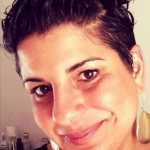 Jacinda D’Oyen-Woodley is a Digital Product Manager at a non-profit organization that offers job training and internships to non-traditional youth. In her free time, she enjoys writing, gardening, crafting, and spending time with her teenage children.
Jacinda D’Oyen-Woodley is a Digital Product Manager at a non-profit organization that offers job training and internships to non-traditional youth. In her free time, she enjoys writing, gardening, crafting, and spending time with her teenage children.

